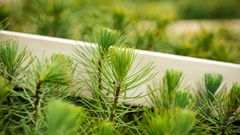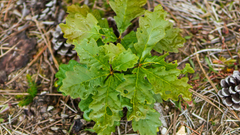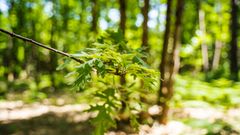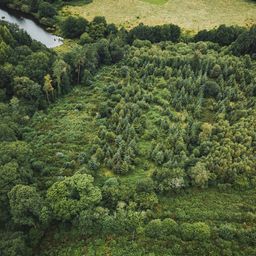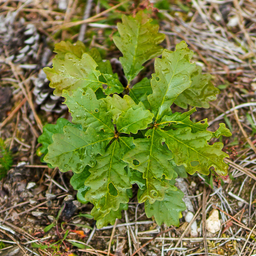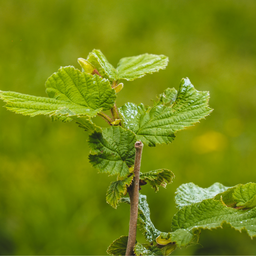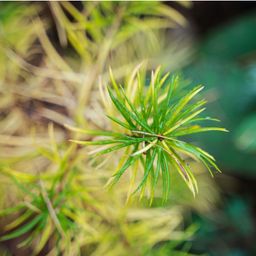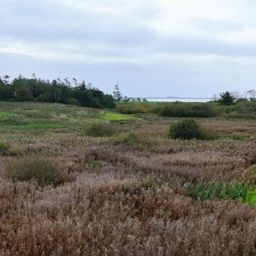Sep 18, 2020
Let’s fight litter! 4 things you can do on World Cleanup Day
It's World Cleanup Day, a day everyone joins forces to fight litter together. Read 4 things you can do for a cleaner planet. Even from home!

Ah… The feeling of walking through the forest: the peace, the silence, the beautiful colours, the smells of the plants - oh wait. What’s that? A cigarette butt? And can you see the glare of a tin can over there? Let’s face it: no one likes to find litter in nature, yet somehow it still gets there. But you can help! World Cleanup Day: a day where everyone joins forces to clean up the earth. What you can do:
1. Go outside today and pick up cigarette butts or other litter
Cigarette butts are one of the most common pieces of litter. Contrary to what people might think, they are not made of paper or cotton, but plastic. 6 trillion cigarette butts are produced every year and 4,5 trillion of them end up... in nature. A single cigarette butt contains over 150 toxic chemicals and can contaminate 1000 l of water. All this to say they might be small… But they have a major impact on nature. And you can easily collect them and throw them in the trash, where they belong!
2. Don’t be afraid to speak up
Don’t be afraid to tell your friends they shouldn’t throw their cigarette butts (or other litter) on the street or in the sewer. Tell them the facts you just learned. Share this blog post on your social media. Engage your family to join you in collecting litter today. Spreading awareness is always the first step. It might feel uncomfortable to speak up, but nature doesn’t have a voice unless you do.
3. Avoid single-use plastics
Did you know that every piece of plastic ever made still exists today? Plastic never really leaves the earth, it can only photodegrade into invisible microplastics when exposed to the sun. The best way to avoid plastic ending up in our environment is to avoid having plastic waste altogether. Get your own set of cutlery, a mealbox, water bottle and coffee cup that you can take with you, wash and reuse every time. And don’t forget to use a reusable shopping bag and cotton bags for vegetables and fruits when you go to the grocery store. It’s simple, small habits like this that make a big impact over time!
4. Clean up from home: digital litter
Not everyone is able to go outside and pick up litter. Especially these days. But did you know you can even help out without leaving the house? That’s right. Digital clutter on your phone, computer and in your emails is not only taking up space… It’s also consuming energy and thus emitting CO2! So make a cup of tea, take your favourite snack, put on a nice playlist and dedicate some hours today to delete old emails, unsubscribe from newsletters you never read, and remove duplicate photos and unused apps from your smartphone. Bonus: it will feel amazing and clears your mind!
You can find more information or register your effort on World Cleanup Day here.
Sources:
- Araújo, M.C.B, Costa M.F. (2019). A critical review of the issue of cigarette butt pollution in coastal environments. Environmental research. https://doi.org/10.1016/j.envres.2019.02.005
- Rebischung, F., Chabot, L., Biaudet, H., Pandard, P. (2018). Cigarette butts: A small but hazardous waste, according to European regulation. Waste Management. https://doi.org/10.1016/j.wasman.2018.09.038
- Torkashvand, J., Farzadkia, M., Sobhi, H.R., Esrafili, A. (2020). Littered cigarette butt as a well-known hazardous waste: A comprehensive systematic review. Hazardous Materials. https://doi.org/10.1016/j.jhazmat.2019.121242
- Kurmus, H., Mohajerani, A. (2020). The toxicity and valorization options of cigarette butts. Waste Management. https://doi.org/10.1016/j.wasman.2020.01.011
- Valientea,R. , Escobarb,F.,Pearcec,J., Bilala,U., Francoa,M., Suredaa,X.(2020). Estimating and mapping cigarette butt littering in urban environments: A T GIS approach. Environmental research. https://doi.org/10.1016/j.envres.2020.109142
- Roland Geyer , Jenna R. Jambeck, Kara Lavender Law (2017). Production, use, and fate of all plastics ever made https://advances.sciencemag.org/content/3/7/e1700782
